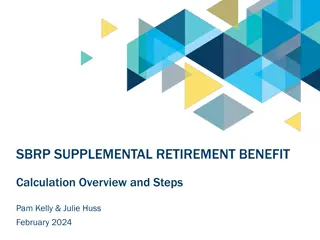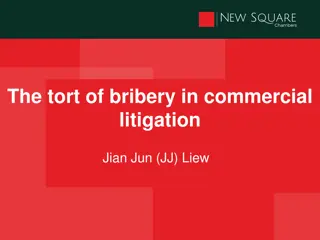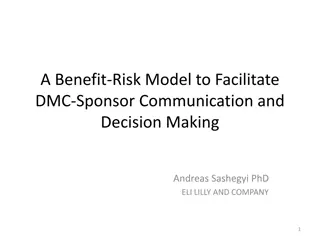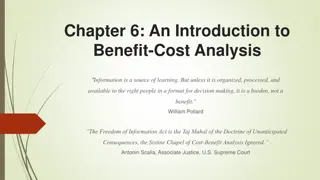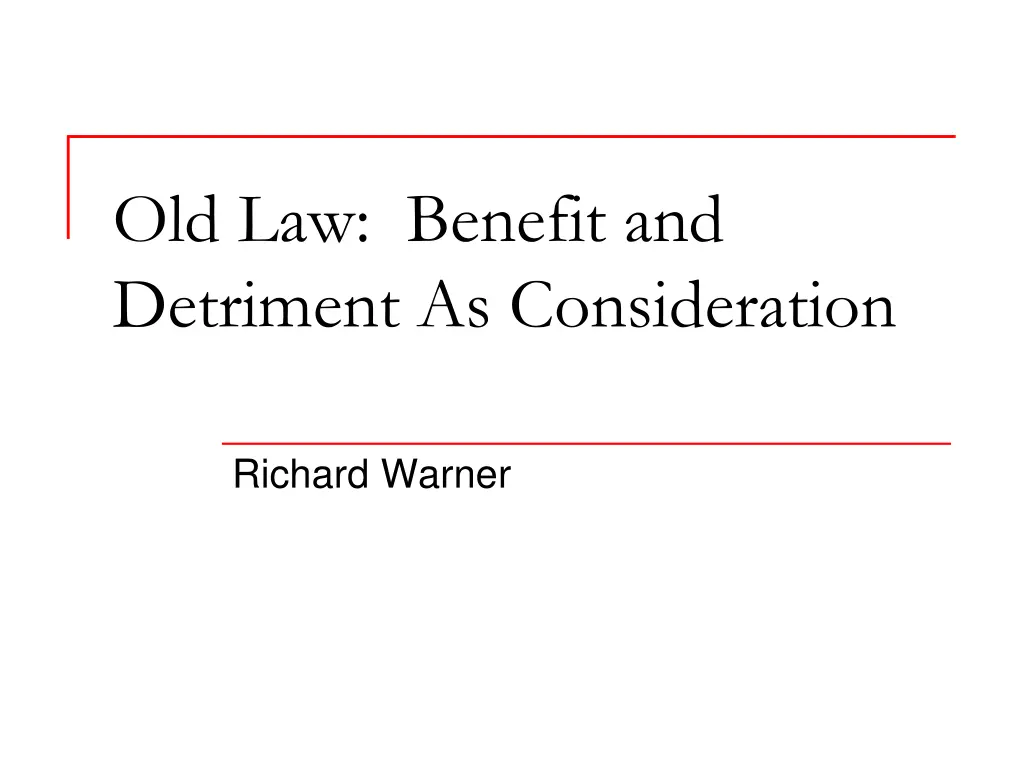
Understanding Consideration in Contract Law
Explore the concept of consideration in contract law, where it is defined as either a benefit to the promisor or a detriment to the promisee. Delve into case examples like Hammer v. Sidway and learn how the courts determine enforceability based on the presence of legal detriment. Discover the significance of abandoning legal rights as a form of consideration.
Uploaded on | 0 Views
Download Presentation

Please find below an Image/Link to download the presentation.
The content on the website is provided AS IS for your information and personal use only. It may not be sold, licensed, or shared on other websites without obtaining consent from the author. If you encounter any issues during the download, it is possible that the publisher has removed the file from their server.
You are allowed to download the files provided on this website for personal or commercial use, subject to the condition that they are used lawfully. All files are the property of their respective owners.
The content on the website is provided AS IS for your information and personal use only. It may not be sold, licensed, or shared on other websites without obtaining consent from the author.
E N D
Presentation Transcript
Old Law: Benefit and Detriment As Consideration Richard Warner
Old Law Consideration is a benefit to the promisor or a detriment to the promisee.
Hammer v. Sidway Promises The nephew: not to smoke, drink, play cards. Uncle: to pay $5000 Who is trying to get out of promise? Uncle's executor Who is trying to enforce promise? Nephew's assignee (nephew sold right to money).
The Executors Claim The executor contends that the contract was without consideration to support it, and, therefore, invalid. He asserts that the promisee by refraining from the use of liquor and tobacco was not harmed but benefited . . ., and insists that it follows that unless the promisor was benefited, the contract was without consideration. What is the rule? The old rule: consideration is a benefit to the promisor or a detriment to the promisee.
The Courts Decision Consideration means not so much that one party is profiting as that the other abandons some legal right in the present or limits his legal freedom of action in the future as an inducement for the promise of the first." To summarize: in eyes of law, giving up what one has right to do is a detriment. Giving up what one has a legal right to do was often called a "legal detriment".
The Problem I promise to give you $5000 if you do not go without food for two days. Two days pass and you eat on both days. Is the promise enforceable? Going without food is a legal detriment. Is this enough for consideration?

